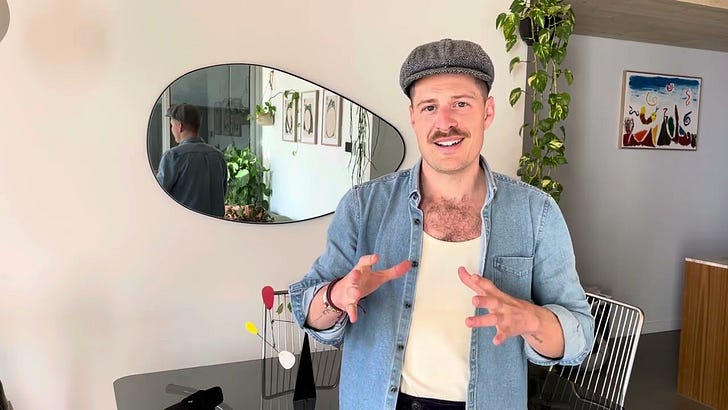Ethics is both harder and easier than you think
And that is exactly why doing ethics is SOOOOOOOOO valuable
On Thursday night, I ran the first ever RSA Oceania Ethics in Action at CoLabs in Brunswick, Melbourne (Australia). Although there’s much I could share about the experience (and I will do that in good time), I’d like to call out a three things about the process of doing ethics that may be useful for you.
The first is the realisation that, although few of us ‘ground’ our deliberation about what we should do in a given situation in the broad and deep landscape of moral theory, we are all doing some kind of VERY practical ethics daily (see video for definition).
When I spend time with folks in my attempt to help them understand this, ideally in a dialogical way (working through different examples, going back and forth etc.), it seems to make the process immediately more relatable (which, in my experience, often improves the quality and usefulness of the time we spend learning together). It’s like, “Hey, I kinda do this already. Alright, let’s get stuck in.”
It removes or limits the ‘strength’ of one particular barrier to participation.
The second is the difficulty of philosophical language. This is unlikely to surprise you. It’s one of many reasons why folks associate philosophy with old men in armchairs, pontificating about stuff that means very little to everyday folks or contexts.
There’s a lot that I could say about this, and there is something to be said about the value of very specific language, it’s historical lineage, it’s ‘proper’ usage limiting equivocation which informs shared understanding, quality dialogue and meaningful progress, but I’ll keep this practical for now. If language is a barrier to helping folks do ethics better (assuming you support people in such a process like I do), then you (the teacher, coach, facilitator etc.) have to work to help them understand - through metaphor, through conceptual blending, through examples, or through other potentially effective means (whatever they may be) - what the principle or theory is really getting at. The burden of ‘breaking it down’ is largely on you.
Yes the specificity of the language matters. But keep in mind, most folks don’t want to spend the next five decades of their life debating the merit of different, competing normative theories. The goal here is to help folks make better decisions about what is good and right, most likely in the context of their work, so that the probability of preferable futures increases. Because of this goal orientation, practical tradeoffs will be necessary.
The third is the impact of unquestioned assumptions. In the video below, I share a little about this. The TL;DR is that, when we’re engaged in a process, such as consequence scanning, that requires us to explore what might happen if we choose to do one thing instead of another, much of our analysis of ‘what might happen’ occurs at the level of ‘events’ (in basic systems parlance, perhaps best expressed as ‘leverage points’). This is an excellent starting point, and is a super important component of the overall activity. But, it isn’t the end. In some ways, it serves as a means towards surfacing deeper value judgements that may be unquestioned or implicit.
Often, as I suggest in the video, these unquestioned assumptions, when questioned, surface that we are operating on seriously shaky ground. The process of exploring, uncovering and expressing these, something like the 5 Whys, can help us better align the initiative in question to what truly matters (i.e. what we really value).
In most consequence scanning, this does not happen. So next time you’re doing this activity, take a little extra time and try your best to surface said ‘deeper’ assumptions (see the video for a concrete example).
To briefly conclude, practical ethics is both easier and harder than most folks think. It’s easier because it’s not that far from what many of us do on a daily basis. We’re really just adding a bit of theoretical scaffolding (which helps make the implicit more explicit, amongst many valuable things) to an already living process. And it’s something that, with a little practice, we can get much better at.
It’s harder for a number of reasons, including challenging language, the impact of unquestioned assumptions, and, the difficulty of really defining the actual problem / predicament (which is often ‘hidden’ because much of our analysis is ‘surface level’, failing to account for said unquestioned assumptions or implicit beliefs).
If any of this is of interest, please join us for the next workshop on the 22/08 at 6pm. You can get a free ticket here.
With love as always.
P.S. Next time I might write about emotion and embodiment, something that was explicit and important in our first workshop.



